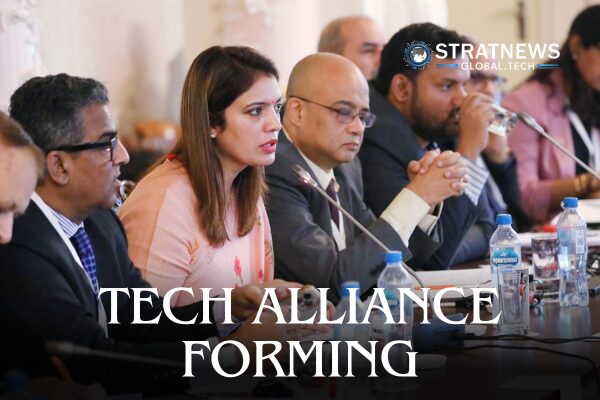In a global technology race dominated by the United States and China, India and Russia are steadily carving out their own path. With initiatives like the India AI Mission and the ambitious India Semiconductor Mission, the country is aiming to establish itself as a credible technological power. Yet, despite the progress, India’s digital infrastructure remains significantly reliant on foreign suppliers.
Russia, too, is seeking to assert its place in the global tech arena. It has demonstrated its capabilities in training IT professionals and in maintaining parity in advanced weaponry. But its domestic IT industry, which accounts for a mere 1–2% of the global market, is hampered by limited human capital and financial constraints.
Against this backdrop, the recent India and Russia IT Dialogue in St. Petersburg signaled a potential new axis of collaboration. Held on the sidelines of the 2025 St. Petersburg International Economic Forum (SPIEF), the roundtable explored a bold proposition: to jointly build a “third center” of technological leadership, independent of Western systems.
Organised under the theme “Russia-India IT Dialogue: Strategic Partnership for Technological Leadership,” the event brought together representatives from both governments, academia, business sectors, and IT associations. The RUSSOFT Association, TSEA, and the Chamber for Indo Russo Technology Collaboration (CIRTC) facilitated discussions on cutting-edge areas such as artificial intelligence and information security—sectors identified as high-priority for joint ventures and practical innovation.
The dialogue took place at a geopolitically pivotal moment. Russia, facing sanctions and isolation, is seeking new markets and partnerships to sustain its tech ambitions. India, meanwhile, is eager to expand its digital and manufacturing capabilities under the ‘Digital India’ and ‘Make in India’ banners. For both, a deeper tech partnership represents more than economic pragmatism—it’s a strategic recalibration.
“You always have to look for alternatives in diplomacy and in technology sovereignty. You can’t always depend on the same system. Hence, there is this attempt to do something non-western between India and Russia,” said Nitin Gokhale, Founder and Editor of StratNewsGlobal Tech, who attended the roundtable.
“Russia was once very ahead in terms of technological prowess, and India is also emerging in these areas. If both nations come together, the role of start-up firms will be far more important. The government can only facilitate, but startups will have to innovate and invent,” he added, underlining the pivotal role startups will play in this emerging ecosystem.
The conference concluded with a shared intent to establish sustainable mechanisms for collaboration between the two nations’ IT sectors. But the road ahead is long. It will require sustained dialogue, formal bilateral agreements, a robust regulatory framework, and aligned standards.
If this vision materializes, it could herald a new technological partnership that not only contributes to a Viksit Bharat but also offers a pathway to renewal for a war-scarred Russia. In a multipolar world, India and Russia may yet have the chance to co-create a third front of innovation—one that is less dependent on the West and more attuned to their own strategic needs.


